4th Year
MONTHS
41 & 42
4th Year – Months 41-42
Pay Attention and Talk with Your Child
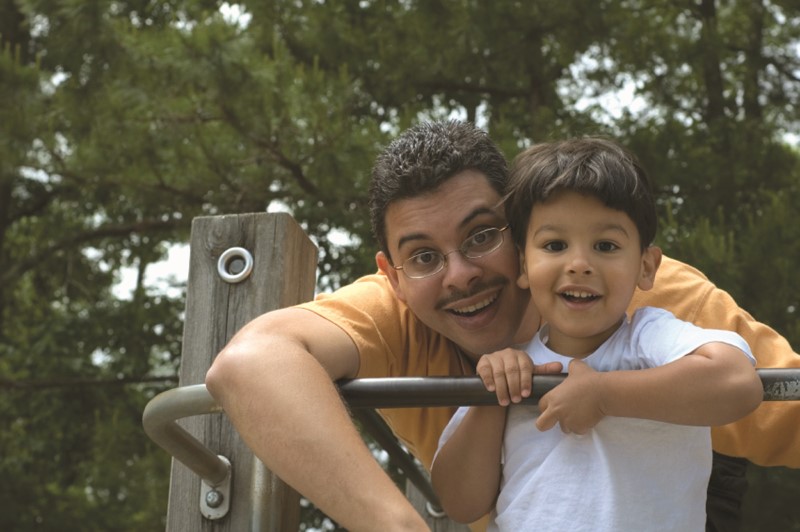
Be Available
- Watch your child and find out when they like to talk most. Are they a chatterbox in the car or right before they go to sleep? This is a great time to start a conversation.
- Focus on their favorite interests — such as an activity or cartoon character. This shows them that you want to talk to them and you are interested in the things that they care about.
Listen
- As adults, we know when a person is actually listening to us, and kids do, too. Try to stop whatever you are doing and focus on what they are saying.
- Repeat what you heard them say to make sure that you understood them. This lets them know that you heard what they were saying. Make sure you soften reactions — as children tend to stop talking if they think you are angry or defensive. They need to know that you hear and welcome their feelings.
Pay attention and talk with your child. Your preschooler repeats “Mommy” or “Daddy” and pulls on your sleeve to get your attention. They want to talk to you! It happens so often that you may not pay attention — but your child needs you to talk with them as often as you can.
What’s It Like to Be 41–42 Months Old?
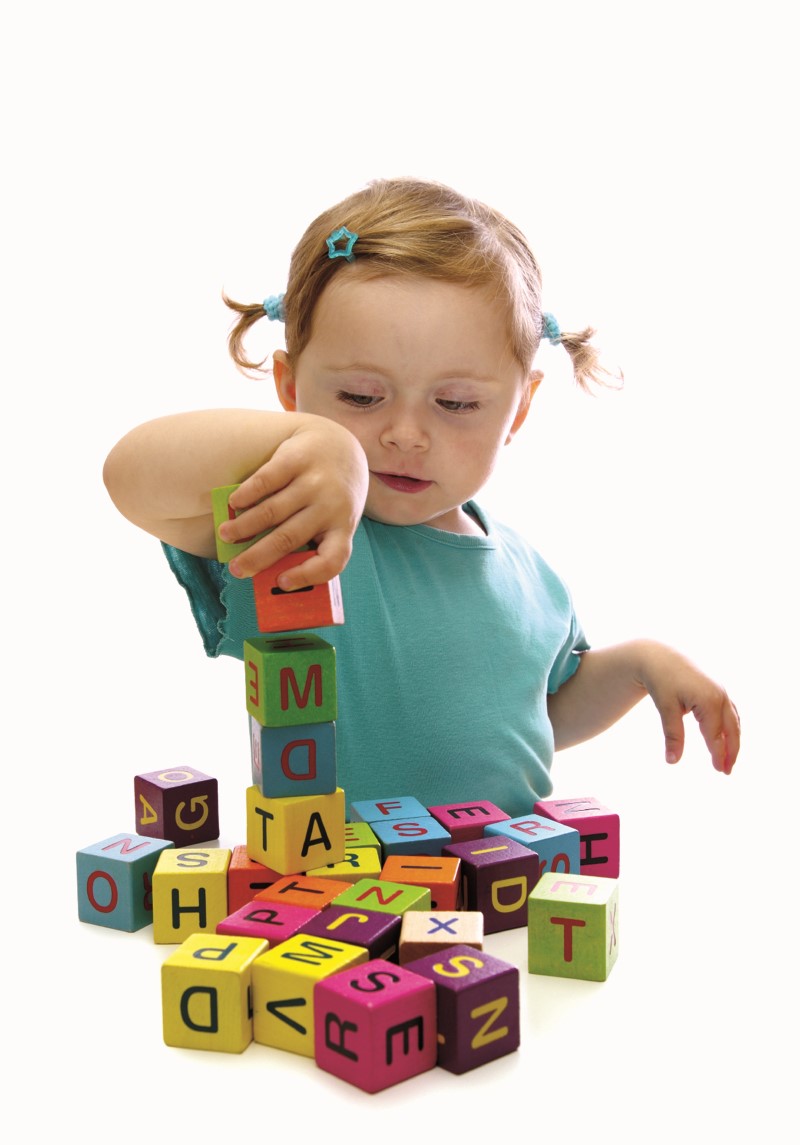
How I Get Along
- I am becoming more independent.
- I can play by myself for about 20 minutes.
- I still need lots of attention, hugging and comfort.
- I may be rebellious and very strong-willed.
How I Move
- I use my body all the time.
- I enjoy tumbling, jumping from heights and twirling in circles until I get dizzy.
- I can stack blocks or objects in order, by size or by color.
- I can follow a two-step direction.
How I Think
- I know my age, and will show you the number of fingers for my age.
- I can repeat three numbers in order.
- I can identify a circle, square and triangle.
- I understand, “let’s pretend.”
- I make long speeches to myself.
Some children do things earlier or later than described here. Most differences are normal. Focus on what your child can do and get excited about each new skill. If you notice that your child is lagging behind in one or more areas for several months, use this list to talk with your doctor about your child’s development.
Crying and Temper Tantrums May Be Stress Clues
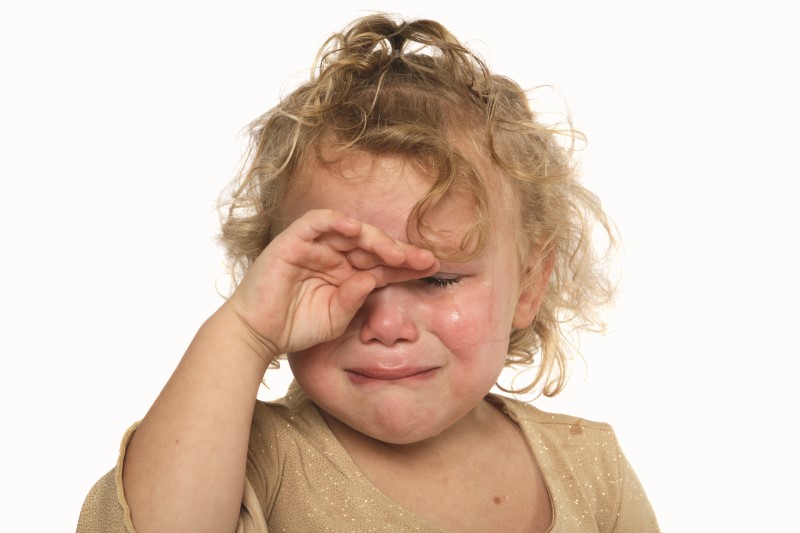
Did you know that stress affects everyone, even the youngest child? Things that can cause stress include natural disasters such as floods, loss of loved ones, or moving to a new home. Everyday things like noisy rooms or late meals can also cause stress. Preschoolers will often show stress by:
- thumb-sucking
- clinging to parents
- bedwetting
- temper tantrums
- uncontrollable crying
- sleep problems, nightmares, screaming in their sleep
To help your child during a stressful time, try to stay calm and relaxed. If possible, stick to your child’s normal sleeping and feeding routines. If they love to snuggle, make sure that you make time to snuggle with them as much as possible. Try to find the space and time for them to calm themself.
Remember that your stress level probably affects your child. Be honest with your child if they ask questions.
- Your child may ask the same questions over and over again. Be patient. Consistent and patient answers help reassure them.
- Take time to read some children’s books with them about stressful situations. This will give them a safe time to ask questions and learn more about your coping skills.
- Reassure your child that you are doing everything you can to keep your home and them safe.
When Your Child Misbehaves, Ask Yourself if They Understand the Rules
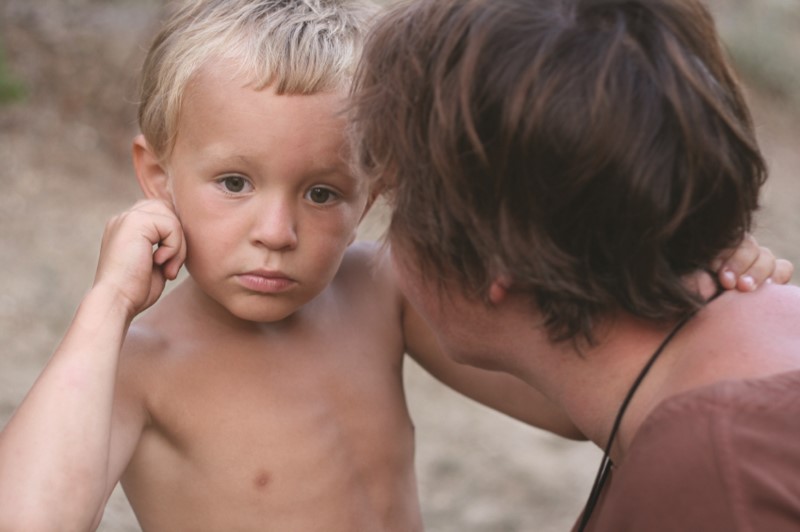
Before deciding your child has misbehaved, ask yourself:
- Are they aware of the rule? For example, do they know they can only eat food at the table? Are they aware a rule has been broken? Sometimes a gentle reminder is enough. “Remember, Andy, sit at the table when you eat.”
- Are they so involved in an interesting activity they do not hear your request? Are they reading a book or watching a favorite television show?
- Is your child mature enough to follow the rule?
- Has your child forgotten the rule?
- Are they having a bad day?
- Why is the child misbehaving? Children misbehave for many reasons. They may be stressed out, trying to get attention, or feel sick.
Prevent Misbehavior before It Happens
- Arrange things so it is easy to do the right thing. Provide play materials — such as crayons, dress-up clothes, toy cars, play dough — so your child has something to do. Remove breakable items from your child’s reach to prevent accidents.
- Give positive choices. “You can either ride your tricycle outside or stay inside and paint. What do you want to do?”
- Keep a routine. Children feel secure by knowing what happens next — and can get upset when their daily routine suddenly changes.
- Tell your child about changes. If you cancel a daily trip to Grandma’s house, explain why. Let them call Grandma to talk about tomorrow’s trip.
- Focus on the do’s, not the don’ts. Children who are told what not to do — such as “Don’t throw your clothes on the bedroom floor” have a hard time learning what they should be doing. Tell children clearly what to do, “Hang up your clothes on the hooks in your closet.”
- Break big tasks into small steps. Help your child clean their room one step at a time:
- Put the three books back on the shelf.
- Put the toys in this bucket.
- Put your clothes on these two hooks
Let Your Child Help Prepare Food
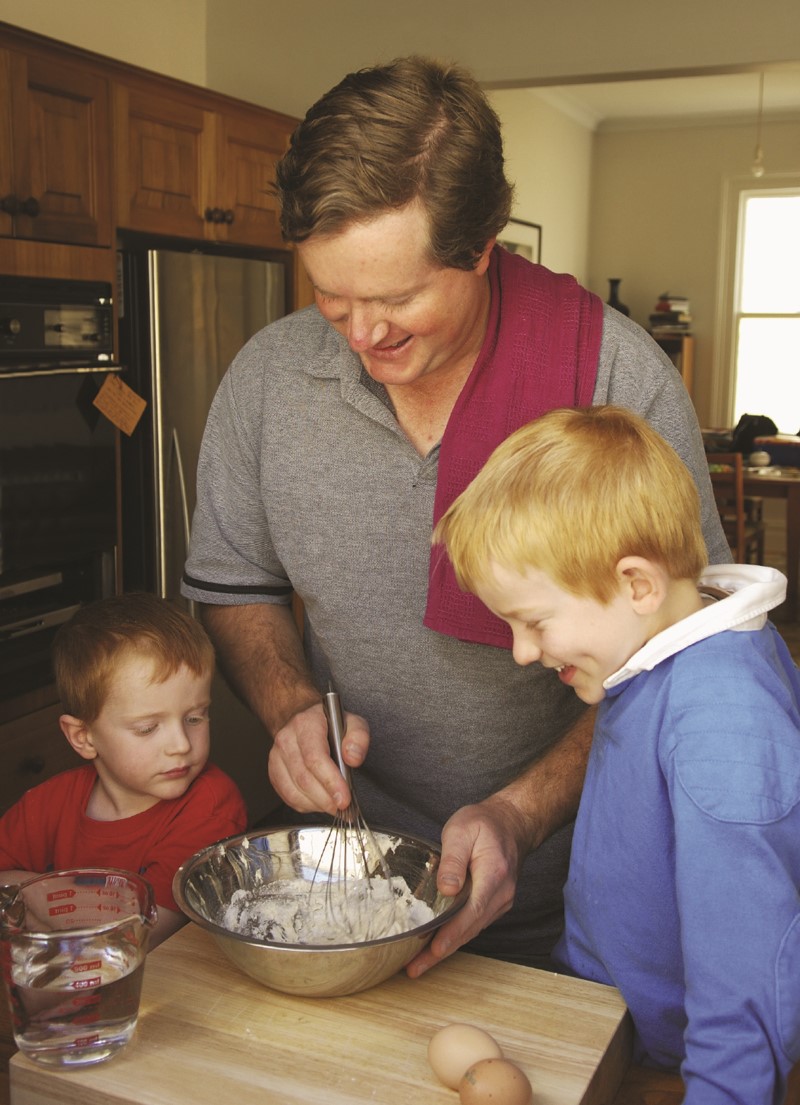 Your child is becoming more independent and may be showing an interest in helping you prepare meals. This is a great chance to help them get excited about and enjoy foods. Not only are you teaching them a life skill, you both will have fun together.
Your child is becoming more independent and may be showing an interest in helping you prepare meals. This is a great chance to help them get excited about and enjoy foods. Not only are you teaching them a life skill, you both will have fun together.
A 3½ year old can be a big help in the kitchen. Your child can safely help you:
- pour liquids that are safe temperatures (not hot ones)
- mix ingredients
- shake liquids in a covered container
- spread soft spreads
- place items in the trash
- help parents/elders with home food composting
Try a “new food night” for the family.
- Have your child help choose the new food in the store, prepare it and serve the food.
- Encourage your child to invent their own snacks using healthy foods.
- When introducing a new food to your child, limit the serving to 1-2 tablespoons, and allow them to ask for more — or serve themself — if they like the food.
Children Feel Proud When They Learn Something New
- Encourage your child to try new skills and to keep trying.
- If they are afraid, let them know that you will be right beside them to keep them safe.
- If they decide to do another activity instead, be patient.
- Let them decide when they feel safe and secure enough to try.
Your Child Believes Things Are Alive and Magic
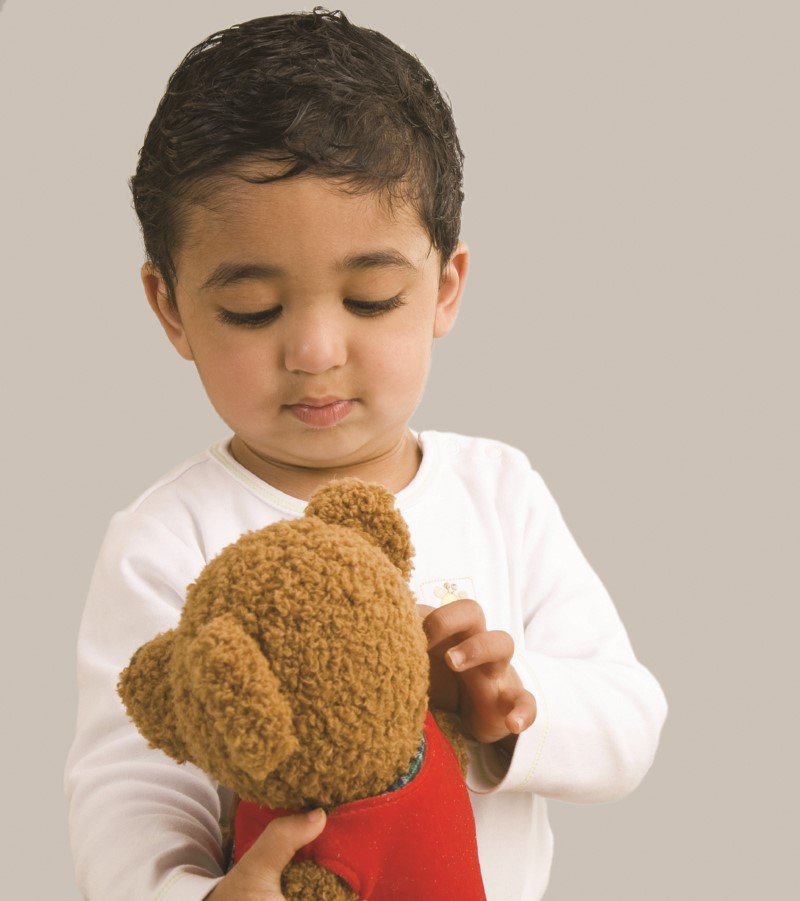
Your child cannot separate fantasy from reality.
- For example, if an adult has a nightmare, they wake up, shakes their head, get a drink of water and say to themself, “Boy, I’m glad that was just a nightmare.” Then they goes back to sleep.
- If your child has a nightmare, they think that the dream actually happened. They cannot separate the fantasy from the reality.
Your child believes in magic. They sees adults turn a knob, and water flows from a faucet; they flip a switch and light floods the room; buttons are pushed and you hear Grandma’s voice. Since your child does not understand how this happens, they think that all of these occur because of the magical powers of adults!
Your child believes everything in the world is alive, especially if it moves, either because someone pushes, pulls or carries it or because it moves by itself. For example, they may talk to the truck as if it were alive. They may become afraid that the curtains fluttering by the open window are monsters and are going to eat them up.
Be a Reading Partner with Your Child
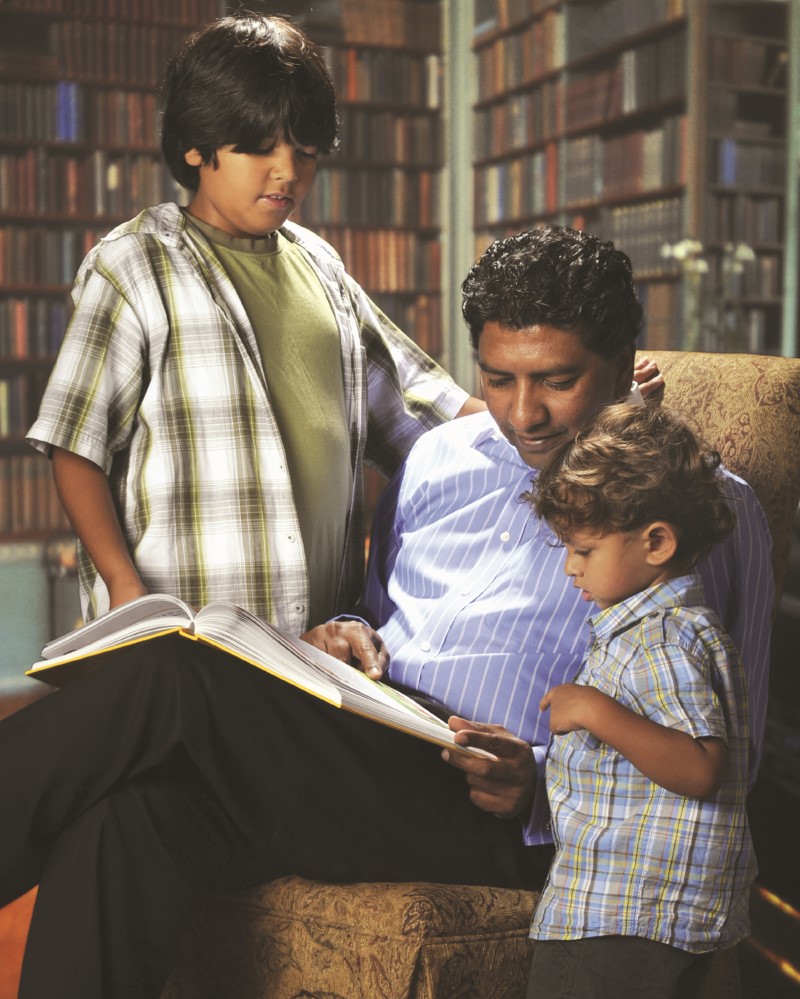
“Read it to me again.” You’ve heard that a lot! If you are tempted to say “No,” remember that it will not be long before that cute preschooler becomes a teenager and will not be asking you to read to her.
Books provide a way to strengthen the bond between you and your child. Most children love the feeling of warmth and security that comes from snuggling up by mom or dad while listening to a story. The physical contact, combined with the familiar sound of the parent’s voice and the lure of a delightful plot, makes a story special.
Besides the pleasure you and your child experience as you cozy up with a favorite book, reading aloud helps your child succeed in school. Preschoolers whose parents read with them at home learn to read more easily when they get to school.
You can encourage your child to read without spending a lot of time or money:
- Let your child see you enjoy reading.
- Read to your child. Books are good — but don’t forget signs, menus, mail, billboards, cereal boxes, recipes, calendars, newspapers, magazines, labels and dozens of other everyday items.
- Use poems. Mother Goose and rhyming songs are great for reading aloud because they have the basic rhythm of language.
- Play word games. For example, say, “I see something brown that barks. What is it? Or, I have a shoe, it’s new. You have a shoe; it is (ask your child what rhymes with shoe (blue).” Play when you’re in the car, on the bus, or on the train, when cleaning, or eating.
- Write notes to your child.
- Make lists of jobs to do and shopping lists.
- Put happy notes in lunch boxes or on pillows.
- Write, “I love you!” or “See you when I get home!”
- Have a family reading time, and record favorite stories or rhymes for playback. Hearing their own voices played back gives young children confidence and encourages them to speak.
Deal with Couple Conflict Before It Gets Out of Hand
Conflict happens in all relationships. In fact, healthy disagreements can be crucial to a long-term adult relationship. Arguments do not have to drive couples apart. It is how you argue that makes a difference. Couples who resolve conflict have rules about arguing:
- They stop fights before the conflict gets out of control.
- They deal with a tough problem before it gets out of hand.
- They respect each other despite tough issues.
- They have a time out rule. If a partner does not want to continue the discussion, they say, “Time out.” Knowing this option is available will keep them from feeling trapped. This provides a cooling off time before things get too hot — then couples can come back and pick up the conversation calmly. Set another time to continue the discussion so the issue is not left hanging.
Spanking Does Not Teach Children What to Do
Most parents do not want to spank their children. They often feel bad when they do. Sometimes, however, parents use spanking to express their own anger and frustrations with their children’s behavior.
- A spanking may stop your child for the moment —but it will not stop them from doing the same thing later on. Spanking does not teach what to do. Spanking makes children feel overwhelmed, hurt, angry and humiliated. Often they do not even know why they got a spanking.
- Physical punishment can lead to aggressive behavior later on. Most parents do not want their children to hit or be hit. They do not want their teenage daughter to think that it is okay for her boyfriend to hit her or their teenage son to slap the neighbor’s little boy. Hitting teaches children that people who love you may hit you, and it is okay to hit people smaller than you are.
- Most parents who spank their children do not go to the extreme of physically abusing them. Most physical abuse of children, however, begins as ordinary physical punishment. Parents lose control and children are badly hurt.
Positive discipline — teaching children the right thing to do — works. Punishment does not work.
Outdoor Play Teaches Physical and Social Skills
Outdoor play gives your child fresh air and the chance to use energy by running and jumping. Besides new physical skills, your child will learn how to get along with others. Outdoor play with other children is a great opportunity for your child to learn social skills. Sharing, taking turns, learning to use manners, solving problems and coping with conflict can all be practiced on the playground.
Take your child out to play or for a walk every day — if weather permits.
- Young children enjoy kickball, chasing games, hide and seek, and climbing.
- Your child can help you with safe outdoor chores. If you are gardening, you could purchase child safe gardening tools and let them help you dig and plant. Young children love to help parents. They will learn life skills as they work with you.